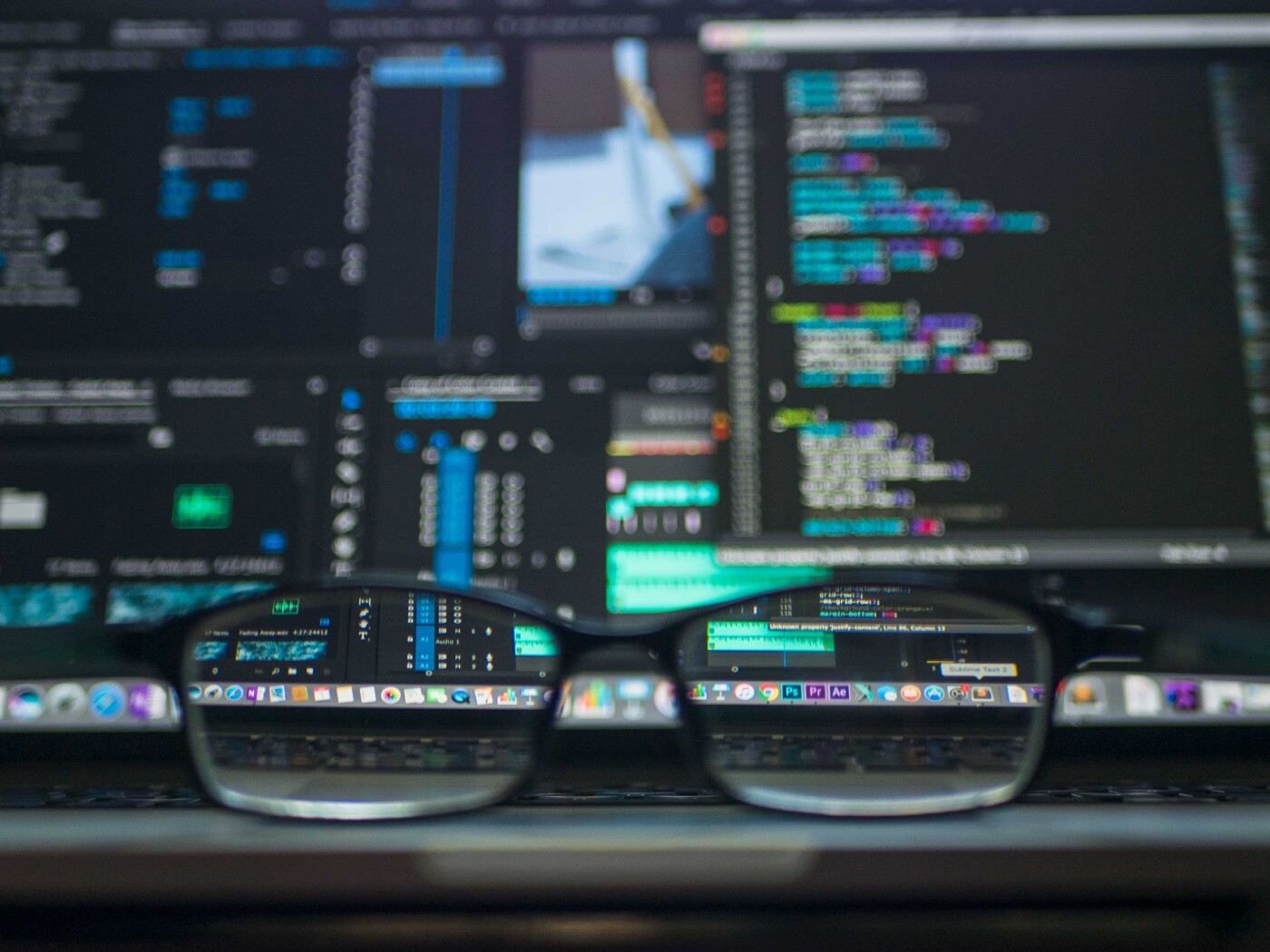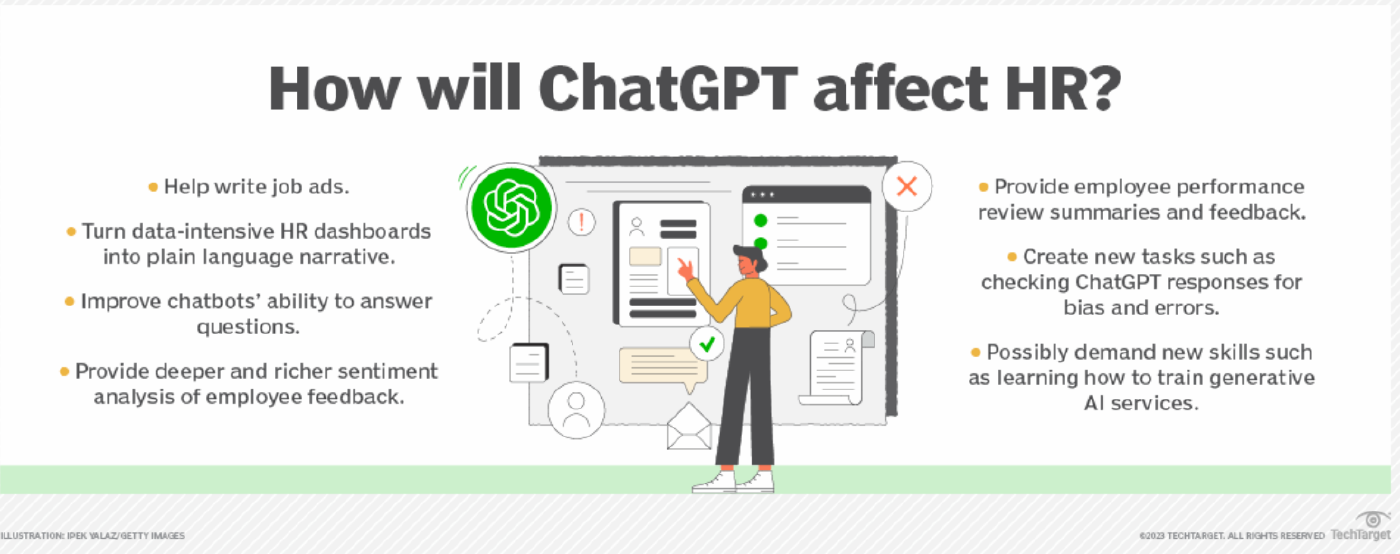Many are speculating about how OpenAI's ChatGPT generative AI technology may impact HR technology and jobs.
According to HR researchers, ChatGPT might be used to assist in writing performance evaluations and job advertisements as well as to enhance chatbots' ability to respond to inquiries. And that's just the beginning. It might also produce a richer sentiment analysis of employee input and condense data-rich dashboards into simple English analyses.
Last week, OpenAI published an API for ChatGPT, allowing vendors and businesses to integrate its generative AI services into their platforms.
"It will be incredibly important to HR," said Stacia Garr, co-founder and principal analyst at RedThread Research, about the arrival of ChatGPT and its underlying large language model, GPT-3.
Garr believes ChatGPT will enable "a far more detailed picture of what people are actually saying" through sentiment analysis and other tools that survey and listen to employees.
The possible impact of technology on HR, particularly on jobs, was discussed during this week's virtual HR Technology Conference & Exposition. Yet, it will be some time before ChatGPT begins to change HR tools.
Garr anticipates that HR suppliers will experiment with this technology for the next 12 to 18 months before determining the best methods to deploy it, "and then it'll take the market by storm," she says. However, HR adoption will be contingent on ChatGPT's capacity to improve efficiency.

Flaws and shortcomings
According to Garr, the capacity of ChatGPT to answer queries on practically any topic is creating a lot of interest. Yet, the technology has weaknesses and possible drawbacks. For example, she wondered if, while delivering an analysis of HR data, the technology would identify what was relevant or notice the most significant changes in that data.
ChatGPT occasionally gets facts wrong, and some experts have discovered bias in its responses, which is a regulatory red flag for HR departments.
About bias, Garr mentioned Kieran Snyder, co-founder and CEO of Textio, who examined ChatGPT's capacity to produce job advertising and performance reviews without bias – and discovered flaws.
"When writing comments for particular professions and attributes, ChatGPT assumes employee gender," Snyder stated in a blog post. "The cheery receptionist is believed to be a woman in testing examples, whereas the unusually powerful construction worker is presumed to be a guy," she wrote. Textio creates a workplace language coaching system that assists companies in avoiding issues such as bias in their writing.
Evelyn McMullen, an analyst at Nucleus Research, stated that ChatGPT is "meant to be an efficiency tool, not a replacement for human cognition."
McMullen, on the other hand, believes that while there will be a rush to develop ChatGPT and products based on the underlying architecture, GPT-3, AI services will not replace many HR tools. "I think it would just boost the capabilities of a chatbot," she remarked.
McMullen does not view ChatGPT as a danger to HR positions. She claims that the technology may "feasibly be used to summarize job descriptions," yet these are mundane jobs that many vendors have already attempted to solve with natural language processing and machine learning. "Human interaction is still required for any higher-level jobs."

ChatGPT's jobs impact
Nonetheless, the impact of ChatGPT on HR employment remains a concern.
What was maybe the first question concerning ChatGPT at this week's HR Technology Conference & Exposition centered on how the technology will influence HR employees: "Will ChatGPT accept HR positions?"
During his lecture, an audience asked an anonymous question to Josh Bersin, an independent technology analyst.
"Many low-level jobs in HR have been eliminated through self-service portals and other technologies," Bersin explained. But he doesn't believe generative AI will reduce HR jobs. Instead, it will make more time for higher-level tasks. "I think the level of capability and the type of work that everybody does is going to go up," he said.
Bersin said ChatGPT will give wrong answers, and HR workers will have to train it and watch what people are asking. He believes it will create new types of HR jobs involving managing and improving ChatGPT technology.
"I'm not too worried about everybody losing their jobs," Bersin said.
Source: TechTarget